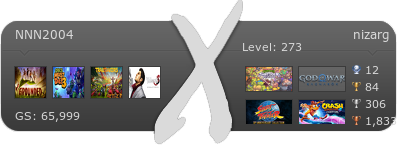NNN2004 said:
thats mean the extra ram for vga cards on pc is a waste. |
More RAM like more processing power provides more potential, more video RAM means you could potentially up the quality of textures (but more storage space is important if you want to provide diverse graphics), a faster GPU allows for better framerates and higer resolutions (amongst other advantages like being able to push more onscreen). It's a balance between more detailed graphics and higher resolution . Super high detailed graphics in a low resolution nears useless and likewise does low detail graphics in high resolution.
But I think more of an impact is actually screen size, I enjoy gaming on a large HDTV and I don't want a bigger than my current 17 inch flatscreen monitor on my desk. For HDTV gaming and multimedia a PS3 console is IMO far more convenient.
24 FPS is already fluent motion to the human eye for the techniques used in motion pictures (such as motion blur). A rock solid 30 FPS can be enough for many games, 60 FPS is better but we can't distinguish faster motion than that (don't confuse with Hz, the faster the screen updates this usually results in a more steady image, less flickering using similar technology, not better perceived motion). 120 FPS in a game thus isn't really beneficial. Also uber high screen resolutions with super high details isn't important on a small screen (like my PC monitor), for average sized HDTVs 720p/1080p is plenty of resolution. For really big expensive screens 1080p will certainly make a difference for most people.



























































